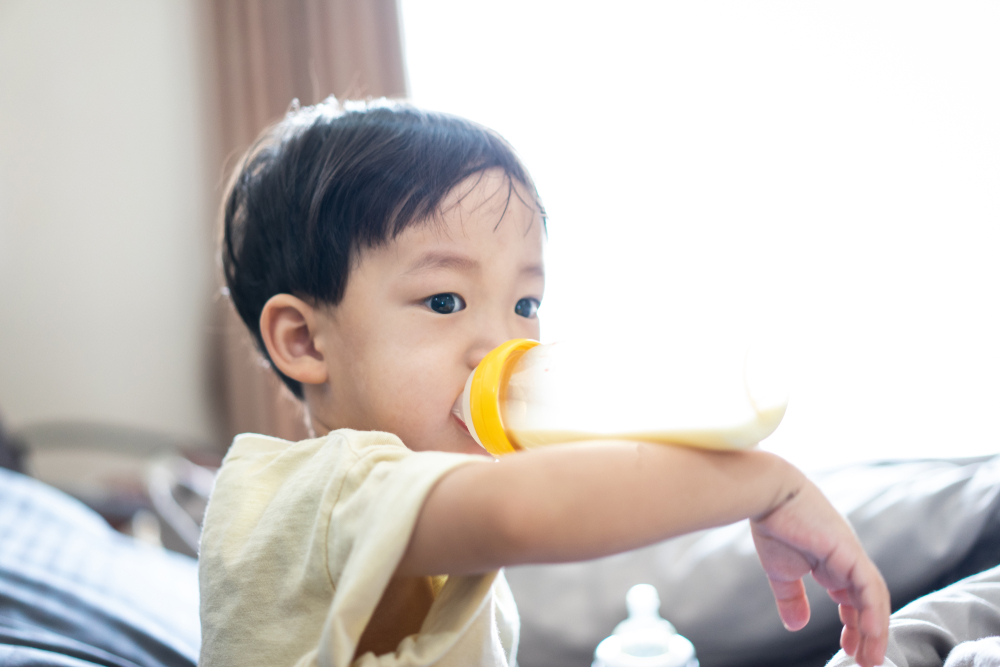

Written by: Registered educational psychologist, Pang Chi Wah
Children need to eat with the help of milk bottles during infant and toddler time. However, many children reach the age of three and use other cups to drink other beverages, but still rely on milk bottles when drinking milk. Long-term use of milk bottles can affect the development of children’s dental cavities. What can parents do to help their children quit using bottles?
First, we need to understand the reasons why children rely on milk bottles. Children may be separated from their parents for long periods of time, making them feel insecure, and using a milk bottle is like “legally” using a teat, providing them with a sense of security. If children are forced to stop using milk bottles, it may have the opposite effect, so the method of quitting should be gradual.
In order to learn to swim, for example, if you want children to quit using swim rings, the best way is to deflate them gradually so that children will slowly adapt to not using the swim rings. Parents who want their children to stop using milk bottles can gradually reduce the amount of milk they give their children so that they no longer rely on bottles to get full and reduce their children’s psychological need for bottles.
In addition, parents can also try to prick a few more holes in the nipple to increase the flow of milk for children, then slowly open up the teat, and finally even cut it so that children can drink milk with a straw. The advantage is that children can still smell the milk, and the familiar smell can make them feel safe, while unknowingly quitting the bottle.